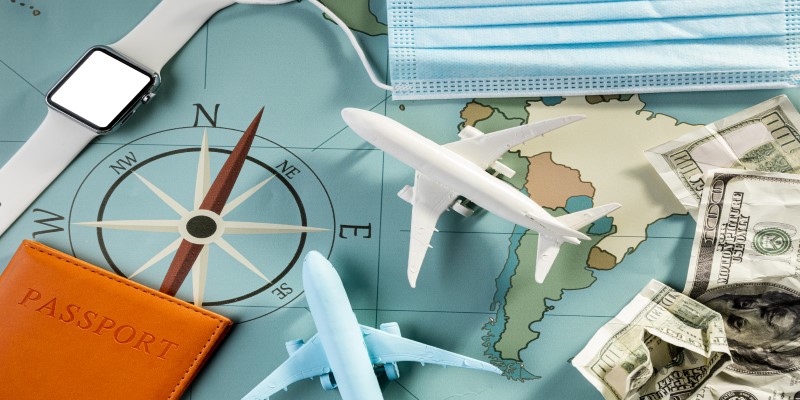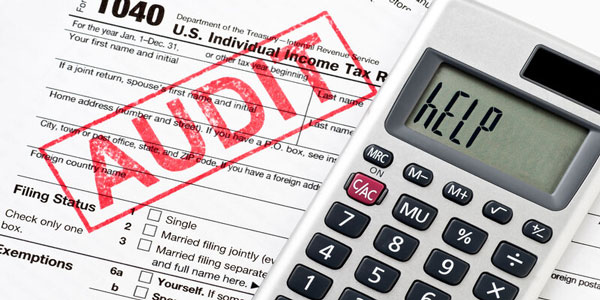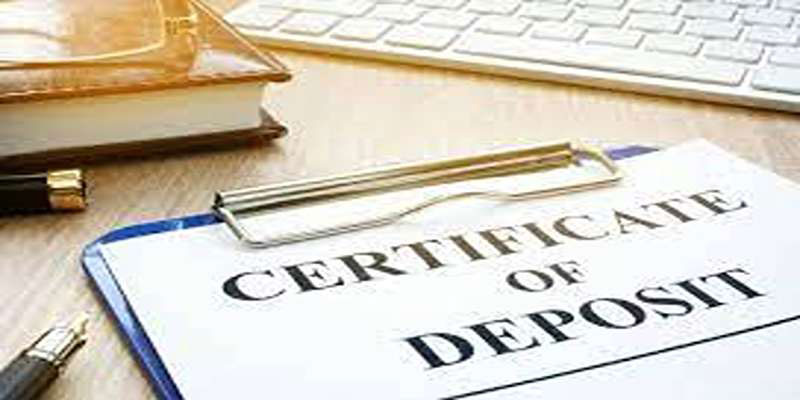Traveling abroad can be an exciting and enriching experience. Whether you're exploring new cultures, trying exotic cuisines, or simply unwinding on a pristine beach, international travel opens up a world of possibilities. However, before you pack your bags and jet off to your dream destination, it's essential to make some smart financial preparations.
In this article, we'll guide you through five crucial money moves to ensure a smooth and worry-free international journey.
Make These 5 Money Moves Before You Travel Abroad
Before you embark on your international adventure, it's crucial to take these financial precautions to ensure a worry-free journey.
Currency Exchange: Get the Best Rates
One of the first things you'll need to consider when traveling abroad is currency exchange. Converting your home currency to the local currency of your destination is a fundamental step. Here's how to make the most of it:
Research Exchange Rates
Traveling tips number one: Before leaving, check the current exchange rates for your destination. Websites and apps like XE Currency or OANDA can provide real-time information on currency values. Keeping an eye on these rates will help you know when the best time to exchange your money is.

Avoid Airport Exchange Kiosks
Airports are notorious for offering less favorable exchange rates. If possible, avoid exchanging your money at the airport. Wait until you're in the city or town where you're staying. Local banks or currency exchange offices typically offer better rates than airport kiosks.
Use ATMs Wisely
ATMs are a convenient way to access cash in a foreign country. However, they often come with fees. To minimize these charges, use ATMs affiliated with your bank's international partners. Furthermore, contemplate making larger withdrawals at once to decrease the frequency of transactions and the accompanying charges.
Notify Your Bank and Credit Card Companies
While you're traveling, the last thing you want is for your bank or credit card company to flag your transactions as suspicious. To avoid any hiccups:
Inform Your Bank
Before you leave, call your bank and let them know about your travel plans, including the destinations and dates. This proactive step will prevent your bank from freezing your accounts due to unusual activity. They can also advise you on any international fees or charges associated with your account.
Set Up Travel Alerts
Many banks and credit card companies offer the option to set up travel alerts through their mobile apps or websites. This allows you to notify them of your travel plans online, reducing the need for phone calls. Setting up alerts ensures that your financial institutions are aware of your international expenditures.
Check Card Compatibility
Not all cards are universally accepted. Make sure your credit and debit cards are compatible with international point-of-sale systems. Visa and MasterCard enjoy broad global acceptance; nevertheless, it's prudent to have a supplementary card from an alternative provider on hand as a precaution.
Budget Wisely: Create a Travel Fund

Now that you've secured your currency and alerted your financial institutions, it's time to set up a travel fund. This will help you manage your expenses while ensuring you don't overspend. Here's how to do it:
Determine Your Travel Budget: Start by setting a realistic travel budget. Consider all expenses, including accommodation, food, transportation, activities, and souvenirs. Having a clear budget in mind will prevent you from overspending and help you make the most of your trip.
Open a Dedicated Travel Account: Give some thought to the idea of establishing a distinct bank account or utilizing a specialized online savings account exclusively for your travel fund. This approach will ensure that your travel funds remain distinct from your everyday financial resources, simplifying the process of monitoring your expenses and adhering to your budget.
Automate Savings: If possible, automate your savings by setting up regular transfers from your main account to your travel fund. This way, you won't forget to save, and you'll steadily build up your travel budget over time.
Invest in Travel Insurance
Travel insurance is often overlooked but can be a lifesaver in unexpected situations. Here's what you need to know:
Types of Travel Insurance: There are various types of travel insurance, including trip cancellation/interruption insurance, medical coverage, and baggage protection. Evaluate your needs and choose the coverage that suits your trip best.
Compare Policies: Don't settle for the first travel insurance policy you come across. Shop around and compare different policies, taking note of coverage limits, deductibles, and exclusions. Look for policies that provide comprehensive coverage without breaking the bank.
Keep Documents Handy: Before you leave, make copies of your travel insurance policy and store them separately from the original documents. Share these copies with a trusted friend or family member back home. Having easy access to your policy details can be invaluable in case of emergencies.
Carry Emergency Cash
While credit cards and digital payment methods are convenient, it's essential to have some emergency cash on hand. Here's how to handle it:
Exchange Some Cash in Advance: Before your trip, visit your local bank or currency exchange office to obtain a small amount of the local currency. This can cover immediate expenses upon arrival, such as transportation or food, in case you encounter issues with ATMs or card payments.
Use a Money Belt or Hidden Pouch: Keep your emergency cash hidden in a money belt or pouch worn under your clothing. This provides an extra layer of security and reduces the risk of theft or loss. Only carry what you're comfortable losing.
Split Your Cash: Divide your emergency cash into multiple stashes, spreading them among different bags and locations. This way, you won't lose everything if one stash is compromised.
Use Local ATMs Sparingly: While ATMs are convenient, they may not be available in remote areas, and some may charge high fees. Use them sparingly and withdraw larger amounts to minimize fees. Always exercise caution when using ATMs, especially at night or in unfamiliar areas.
Conclusion
By following these five essential money moves, you'll be well-prepared to embark on your international journey. From exchanging currency to safeguarding your finances with insurance and emergency cash, these steps will help you navigate the financial aspects of travel with ease and confidence.
So, pack your bags and get ready to explore the world, knowing that your finances are in good hands. Safe travels!







